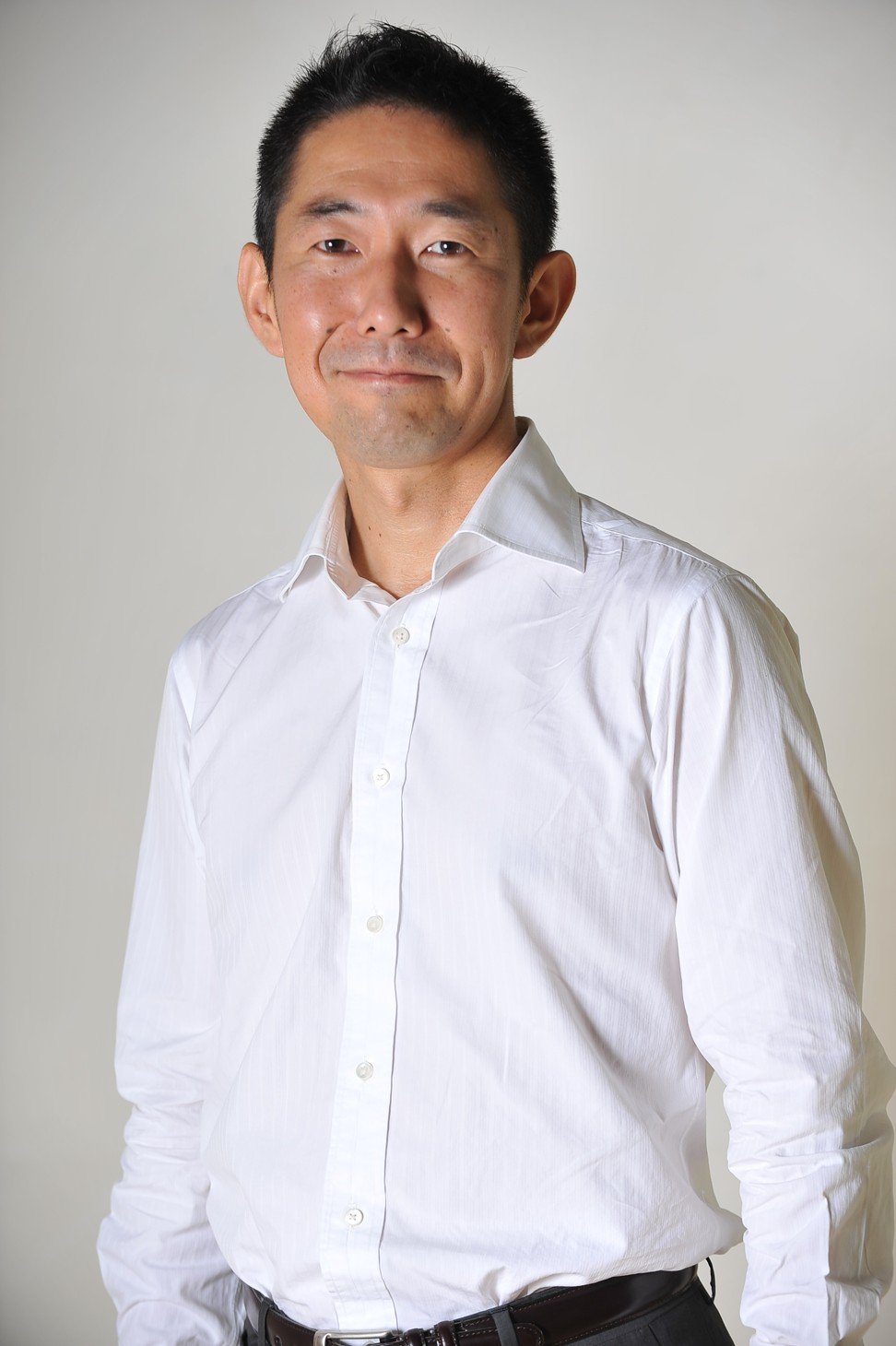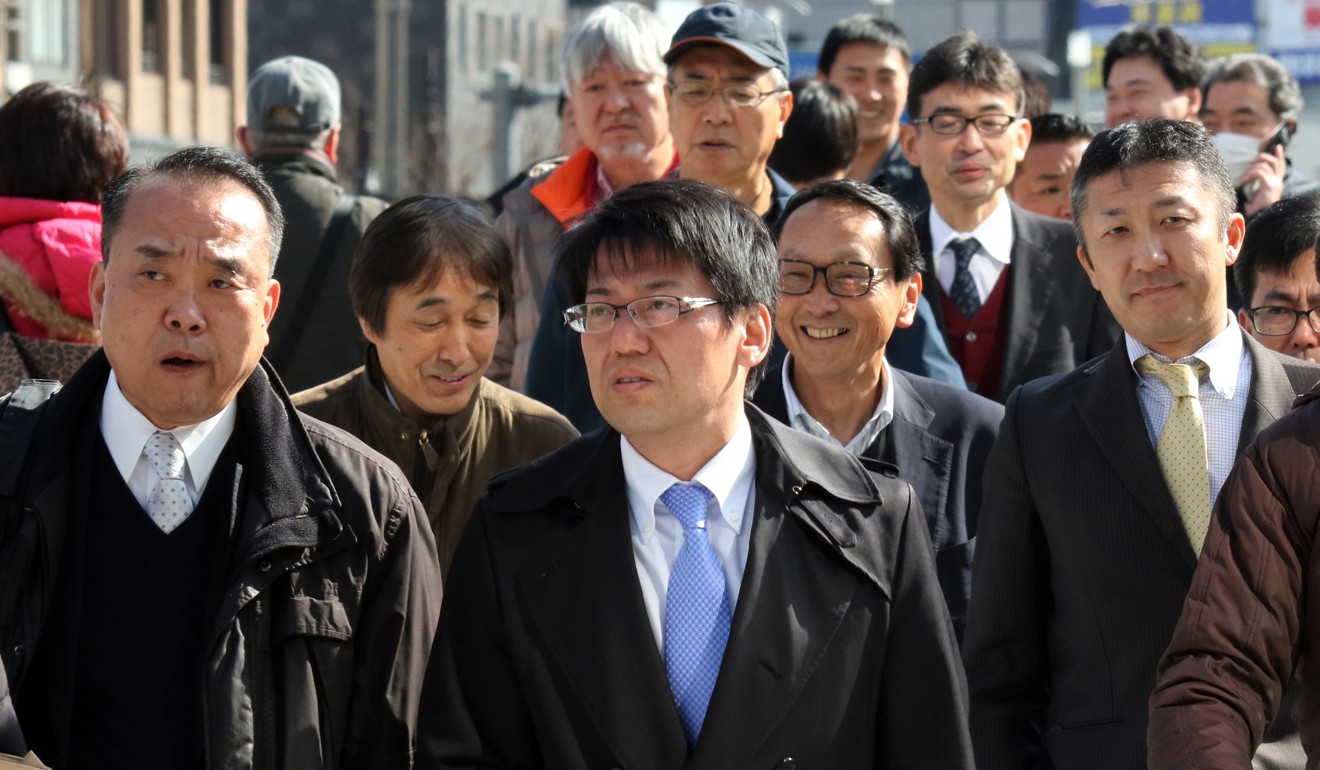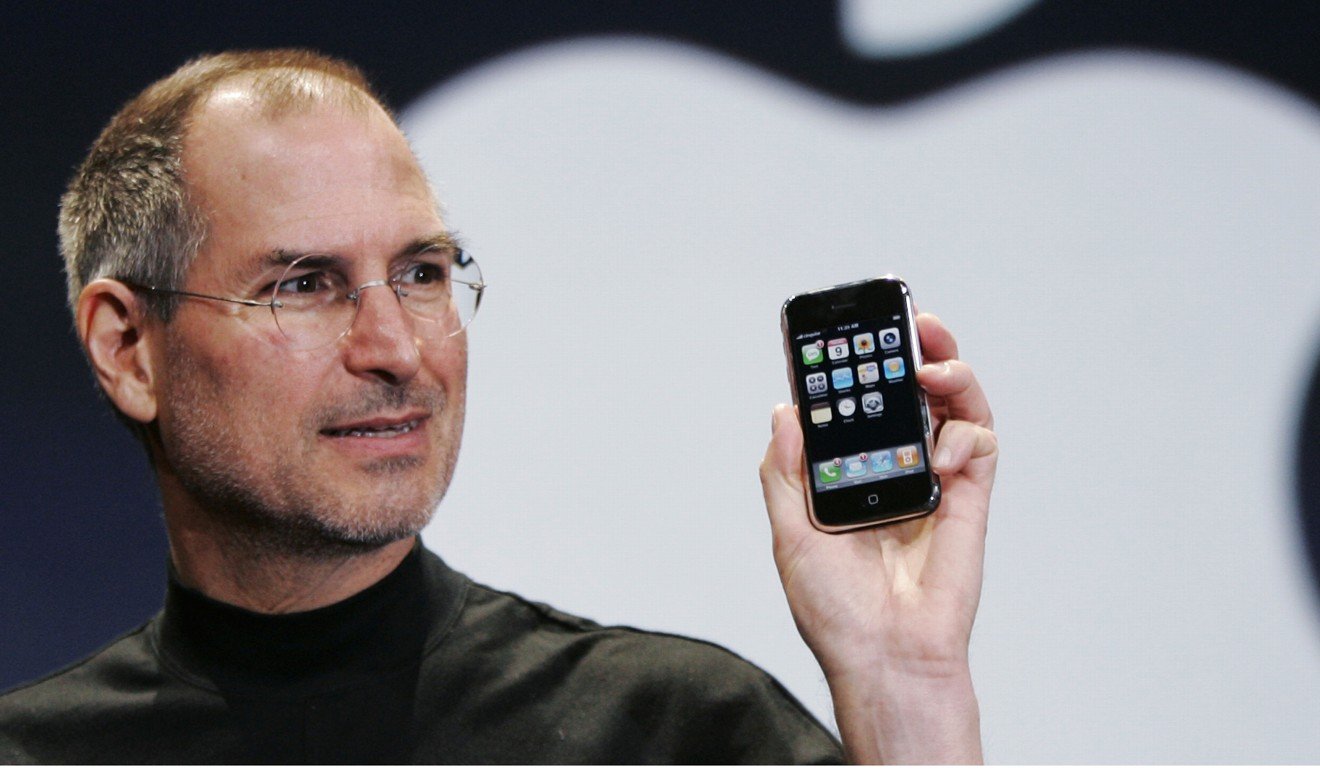
How mindfulness and meditation turned a workaholic’s life around, and how they can help you beat stress
- Mindfulness maven Junya Ogino teaches that you don’t have to know Zen Buddhism to help decompress from work pressures
- You can be mindful by just folding your clothes, he says
If, like a stereotypical Japanese salaryman, you are working brutal hours and sacrificing your well-being just to stay afloat, consider yourself lucky, mindfulness maven Junya Ogino says.
Why? Because you’re in a perfect position to try a simple brain hack that will put you on top of your game, helping you to face reality head-on, the confessed workaholic says. “Mindfulness could save lives,” he says.
Fed up with being ‘mindful’? Try mindlessness, the art of zoning out
As a certified instructor of the Google-born Search Inside Yourself contemplative training programme, Ogino warns his countrymen not to wear work addiction as a badge of honour because he believes it could put at risk their most critical asset: mental health.
Ogino teaches mindful leadership courses at companies across Japan, a country notorious for its workplace culture of long hours and rigid hierarchies, and leads workshops for executives seeking to create a mindful culture within their teams.
Mindfulness practitioners like Ogino know workers will never excel at anything when they are multitasking, partly doing this and partly doing that. If you are pouring your coffee into a to-go cup as you rush out the door, that is a big red flag, they say.
You are not just giving your brain a break when you stop trying to be everything to everyone; you are preventing potential damage by focusing on a single task and treating yourself to a few minutes of me-time every day, Ogino says.
The 45-year-old adds that it’s time to drop the myths. You do not have to chant. You do not have to be vegan. You do not have to shave your head. You do not have to wear tie-dye. It requires you to go nowhere and costs you no money.

Ogino, CEO of the Mindful Leadership Institute, knows from experience you have nothing to lose and everything to gain by living a more purposeful, centred life.
“You do not need a yoga mat or a cushion to start meditation. You can be mindful while taking a shower, or working on your computer, or cooking, or folding your clothes,” he says.
“Meditation and mindfulness aren’t the same. You do not have to meditate to be mindful. If you’re focusing on the present moment, that’s mindfulness already. Look around. Opportunities are everywhere.”
As one of about 200 certified teachers of the globally recognised SIY mindfulness training programme, Ogino sees an urgent need for Japan’s stressed-out workers to learn to sit still for two minutes without the chorus of to-dos in your head getting in the way.
“Mindfulness is all the more important in this digital age. We’ve become unable to focus. That’s why we need to set a ritual of meditating every day and transform how we think, feel and act,” he says.
I got burnt out. If I had gone to a doctor I probably would’ve been diagnosed with depression. I even had the urge to jump off the balcony of my 31st-storey condo
Ogino, like many white-collar salarymen in Japan’s unforgiving contemporary corporate culture, was a workaholic and an insomniac in his late twenties and early thirties. At the time, his goals were money-driven and his idea of success was owning a red Volvo.
He would sleep on the conference room table after 18-hour work days and rarely make it to his own bed, but the adrenaline highs did not last forever. He fell into unhealthy patterns of thought.
“I got burnt out. If I had gone to a doctor I probably would’ve been diagnosed with depression. I even had the urge to jump off the balcony of my 31st-storey condo,” he says.
Ogino feels that work-related stress is a deep-rooted problem in Japan, possibly best shown by the fact the language even has a word for death from overwork – karoshi.
In 2005, when Ogino had an eye-opening yoga experience, he was not even familiar with the term “mindfulness”. But something felt right, and six months after his first yoga lesson, which included a brain-fog-clearing meditation, Ogino took a job in the yoga industry.
“Today the concept of mindfulness has become somewhat of a buzzword, but still, overall, I would say less than 1 per cent of the Japanese know what it is,” Ogino says.
“Some people are sceptical and think the whole meditation thing is an absolute scam, especially those above 50 years old.”

Ogino remains open-minded to those who think meditation is linked to religious cults and dismiss the whole idea of contemplating their breath. He practises what he preaches. The author says that finding inner peace does not have to involve sitting cross-legged in a lotus pose.
Though meditation has yet to enter the mainstream in Japan, he sees a gradual increase in the number of “conscious leaders” thanks to businesses such as internet giant Yahoo, HR agency Recruit and Tokyo-based start-up Sansan joining the mindful movement.
While the late Apple co-founder Steve Jobs expressed appreciation for Zen Buddhism, Ogino talks about the tradition’s neurological benefits. Meditation is both spiritual and scientific, he explains to those who are reluctant to learn about the ancient Eastern practice.
Why stressed Hongkongers should take a hike, not a pill
Through mindfulness one can develop self-awareness which is an essential skill for being an effective leader, Ogino says. The science-backed method does not work on the level of faith or trust.
“[Japanese broadcaster] NHK aired a meditation special on their programme, and if you saw the news on the Thai boys who were trapped in a cave, you’d know that they used meditation to stay calm until they were rescued. Little by little it’s spreading,” Ogino says.
“If leaders learn the transformative power of meditation their employees will reap the benefits. We teach them what meditation does to your brain. The ‘fear centre’ amygdala shrinks and the prefrontal cortex becomes thicker, improving concentration.”

A satisfactory level of emotional intelligence is one of the fastest growing job requirements nowadays, Ogino says, and the focus is now changing from IQ (cognitive intelligence) to EQ (emotional intelligence) as a key leadership skill.
The bottom line, according to Ogino, is that meditation is a practice that helps people who want to be helped.
“I’m not selling products or services to anyone. I’m aware of the stereotypes and misconceptions surrounding meditation so I’m not forceful. I know when to keep my mouth shut,” he says.

But many people Ogino speaks to admit they are dealing with some form of mental disorder, such as wrestling with self-judgment or low self-esteem. He says all these issues come from the regret of past actions or fear of the future – not living in the present.
These types of people, for years and years, have had a bad habit of excessive thinking, so it’s easy to spiral. By simply being present, one can kick the over-thinking habit, Ogino says.
“It’s like building muscle, not for a healthy body, but for a healthy brain. It takes training. It’s a skill. And there will come a point and time when you know you’re in the here and now,” Ogino says.
“If you’re wondering whether you’re doing it right, you’re not there yet. You’re still judging. You need to disconnect and observe. It’s the same with anger management. You have to first notice you’re angry.”
Being mindful enables you to have healthier relationships
Ogino tries to set aside time to meditate every day, and says the office isn’t the only place to experience the positive effects of mindfulness.
No time for mindfulness? Think again, the working dad says.
“Choosing to respond instead of reacting to your child makes you a mindful parent. Of course, you’ll make mistakes, but you learn. The next time you’re in a similar situation, you’ll know that you can make a different choice. Parenting will feel less daunting.”
As Ogino says, no one ever really masters mindfulness. Hopefully, he says, the meditation trend among top performers on Wall Street and in Silicon Valley will continue, and eventually reach all of humanity.
“You wonder what their secret is and find out about their mindful habits. That’s how many people start practising themselves. My breakthrough was being able to control anger. Being mindful enables you to have healthier relationships,” he says.
Ayurveda solved his problems, so Singaporean launched Ayurvedic company
“I’m no saint just because I’m a teacher. I still experience stress. No one can avoid all stress. Expect ups and downs. Keep practising. The results will come. It changed my life, and it could change yours, too.”

